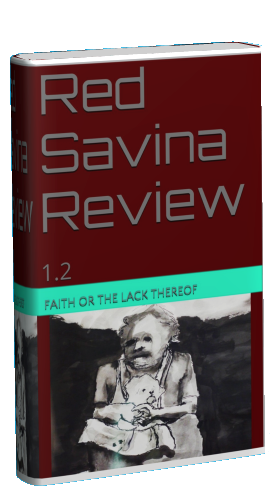Red Savina Review 1.2, Fall 2013
New Online Lit Mag From the Southwest Brings Spiciness and Zest, Review of Red Savina Review, Fall 2013,”MaryLee MacDonald, “… two stories by Gleah Powers: “Abortos” and “Pink Flamingos.” The first story is about a young, woman artist who crosses the border to help a friend have an abortion. The second story is about the two women five years later. Emotionally powerful, risk-taking and truthful, these are stories I want to read and reread….” The Review Review
“Abortos” was nominated for a Pushcart Prize.

Abortos
One night in late summer, two months after we graduated from high school, Arlene and I drove from Phoenix, where we lived, three hours through the desert in ninety-five degree heat, to Nogales, so she could get an abortion.
We’d been told to go to the bus depot on the American side and wait in the cafeteria for the doctor to approach us. When we walked in, pairs of brown eyes darted toward us; tired looking women in long skirts and men in faded black pants. Their children pointed and said, “Mira, las hueras.”
We sat at a long metal table on an attached bench, drank coffee and smoked cigarettes. A huge clock, its face stained brownish yellow from food grease and dirt, hung on a paint-cracked wall. Its hands, barely visible, read 10:35. Our appointment was at eleven. An evaporative cooler rattled above our heads, spitting out hot muggy air. I tried to conjure up a good outcome, but couldn’t help tensing the muscles in my chest and ribs, armoring myself for the possible butchering of Arlene that I would somehow have to handle. Raised Catholic, she feared God would punish us and, though we were almost in Mexico, I worried that if God didn’t get us, the government would. We were under age, but we could still be arrested and thrown in jail.
One night in late summer, two months after we graduated from high school, Arlene and I drove from Phoenix, where we lived, three hours through the desert in ninety-five degree heat, to Nogales, so she could get an abortion.
We’d been told to go to the bus depot on the American side and wait in the cafeteria for the doctor to approach us. When we walked in, pairs of brown eyes darted toward us; tired looking women in long skirts and men in faded black pants. Their children pointed and said, “Mira, las hueras.”
We sat at a long metal table on an attached bench, drank coffee and smoked cigarettes. A huge clock, its face stained brownish yellow from food grease and dirt, hung on a paint-cracked wall. Its hands, barely visible, read 10:35. Our appointment was at eleven. An evaporative cooler rattled above our heads, spitting out hot muggy air. I tried to conjure up a good outcome, but couldn’t help tensing the muscles in my chest and ribs, armoring myself for the possible butchering of Arlene that I would somehow have to handle. Raised Catholic, she feared God would punish us and, though we were almost in Mexico, I worried that if God didn’t get us, the government would. We were under age, but we could still be arrested and thrown in jail.
This story is now part of my memoir, Million Dollar Red.